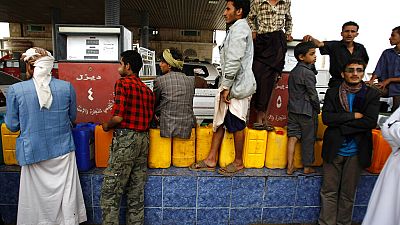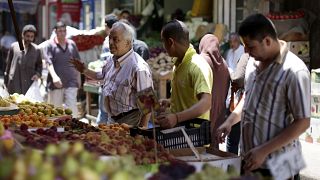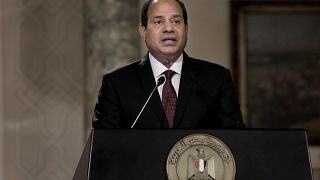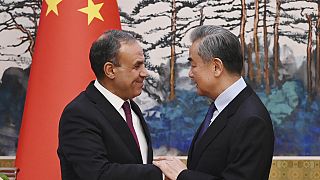Egypt
The Egyptian government raised fuel prices on Friday in a move that is bound to exacerbate inflationary pressures on an already struggling population.
The new prices were announced on the Cabinet's Facebook page and came into effect Friday morning. The price of diesel, the main fuel for the transport of people and goods, rose from 8.5 Egyptian pounds ($0.18) to 10 pounds ($0.21) per litre.
Egypt, a net importer of energy, increased the price of 95 octane gasoline to 13.5 Egyptian pounds ($0.29) per litre from 12.5 pounds ($0.27).
The government said the hikes resulted from the increased cost of importing energy because of the depreciation of the local currency and the global surge in energy prices following the turmoil in the Red Sea.
On March 6, Egypt's central bank announced the adoption of a market-based exchange rate after nearly a year of defending an over-valued local currency, which inadvertently invigorated a parallel market. The pound's official rate fell from nearly 31 to 51 per U.S. dollar before appreciating by nearly 10% in recent weeks as the banking sector began receiving large inflows of foreign currency, according to the government.
The government also increased the cost of widely used butane gas cylinders from 75 Egyptian pounds ($1.61) to 100 pounds ($2.14). Last year, a Cabinet member said Egyptians consume around 800,000 butane cylinders a day, 50% of which are imported.
The fuel price hikes are expected to further affect consumer purchasing power and inflation rates. Last month, the annual urban inflation rate jumped to 35.7% from 29.8% in January. The cost of food alone increased nearly 51% in February from a year earlier.
The price hikes are in line with conditions set by the International Monetary Fund for the disbursement of further loans to Egypt.
Egypt reached a deal with the IMF earlier this month to increase a bailout to $8 billion from $3 billion after marathon negotiations.
The lending institution has constantly urged the government to depreciate the currency and embark on monetary and fiscal tightening policies, including a cutback in government subsidies.
The Egyptian economy has been hit hard by years of government austerity, the coronavirus pandemic, the fallout from Russia's invasion of Ukraine, and most recently, the Israel-Hamas war in Gaza.
Houthi attacks on shipping routes in the Red Sea have slashed Suez Canal revenues, which are a major source of foreign currency for Egypt. The attacks forced traffic away from the canal and around the tip of Africa.
Last month, the United Arab Emirates threw a lifeline to Egypt by announcing a $35 billion investment project along its Mediterranean coast.














Go to video
In Kenya, 90% of packaged food needs health warning label under new rules
00:52
Nigeria’s Peter Obi to contest 2027 election, opposition coalition in jeopardy
Go to video
Cameroon’s Tourism Minister joins presidential race as Biya’s silence fuels uncertainty
Go to video
INTERPOL seizes $65M in fake drugs, arrests 769 in largest-ever global crackdown
Go to video
Uganda's Museveni breaks African silence on Israel-Iran war
Go to video
Over 40 killed in attack on Sudanese hospital: WHO Chief condemns “Appalling” strike